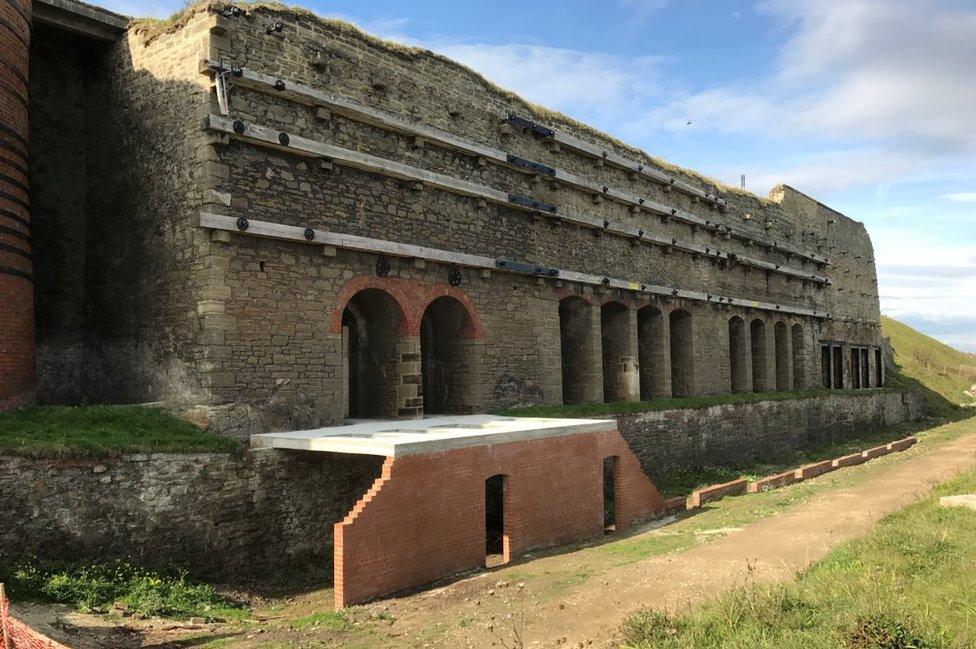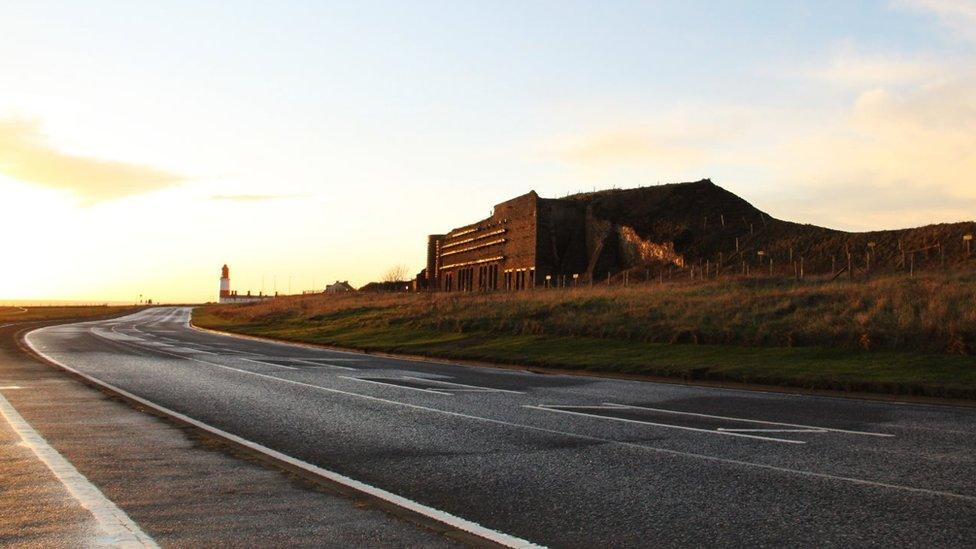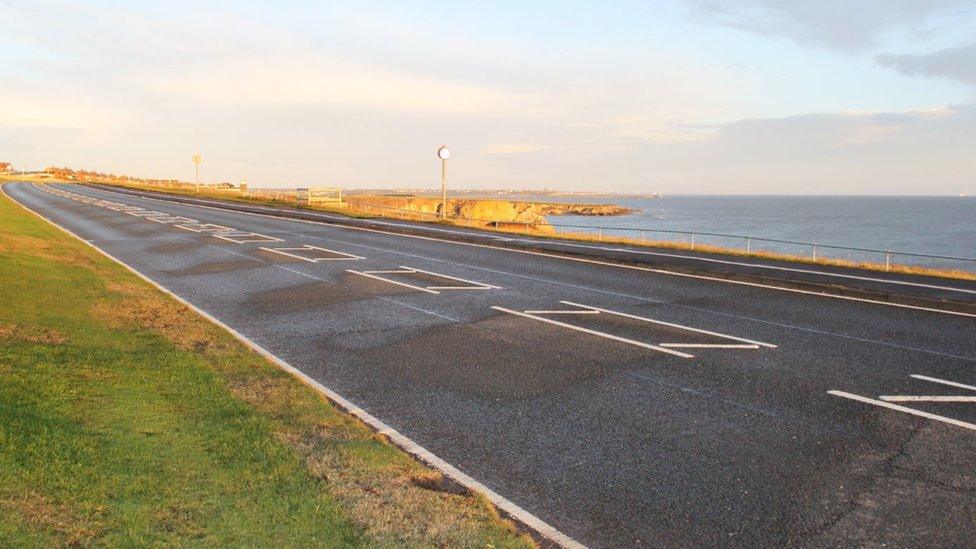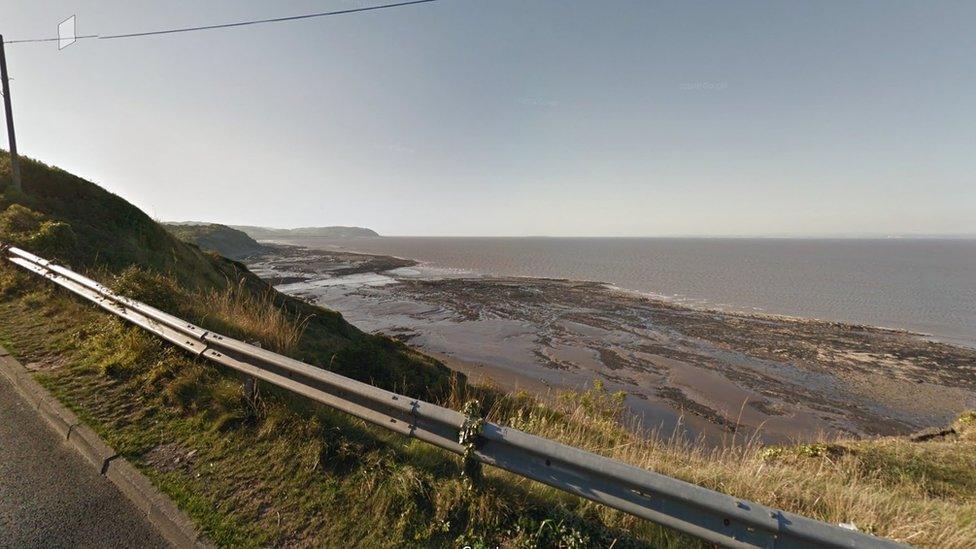Marsden lime kiln demolition 'would be very unusual'
- Published

The Marsden lime kilns underwent significant repairs between 2014 and 2016
A councillor's suggestion that listed lime kilns could be knocked down so a nearby road can be rebuilt has been criticised by Historic England.
South Tyneside councillor Gladys Hobson said the "eyesore" Marsden kilns could be demolished as the council looks to move the nearby cliff-top road inland.
Erosion is causing concern about the A138 Coast Road's future, with plans to move part of the road being considered.
But Historic England said the kilns were "rare" and "nationally important".
Plans to move a section of the road away from the crumbling cliff-top should extend its lifespan by 50 years while plans for a permanent solution are worked upon, according to the council.
At a meeting of the authority's Riverside Community Area Forum, project manager Ian Guard said the road was being undermined by caves below and the area next to Marsden kilns "is not as susceptible to coastal erosion", according to the Local Democracy Reporting Service.
Ms Hobson, a Labour councillor, said the kilns could be demolished to make way, adding she was "always puzzled" they were listed buildings.
"I'm yet to find anybody who finds them aesthetically pleasing [so] I thought there could have been some kind of dispensation to take the lime kilns away to take the road further in," she said.
"Every time I drive past, I think what an eyesore."

The kilns are a "rare survival" of the lime industry of Durham, Historic England said
The kilns, listed as scheduled monuments by Historic England, were built in the 1870s and produced lime for farming, construction and heavy industry until the 1960s.
Historic England had previously listed the kilns on its "at risk" register, but their future was secured due to work by the council between 2014 and 2016.
A Historic England spokeswoman said the kilns were a "rare survival of the once very prolific lime industry of Durham in the North East in the 19th Century".
"We have not been consulted on any plans for demolition of the Marsden lime kilns. It would be very unusual for permission to be given for the loss of this kind of nationally important heritage site," she said.
A planning application for the road move is expected to be submitted in the summer, with construction starting in 2022.
The council previously said an environmental impact assessment would be prepared to ensure the kilns were not "adversely affected".

Follow BBC North East & Cumbria on Twitter, external, Facebook, external and Instagram, external. Send your story ideas to northeastandcumbria@bbc.co.uk, external.
- Published6 February 2021

- Published17 January 2021

- Published9 September 2020
